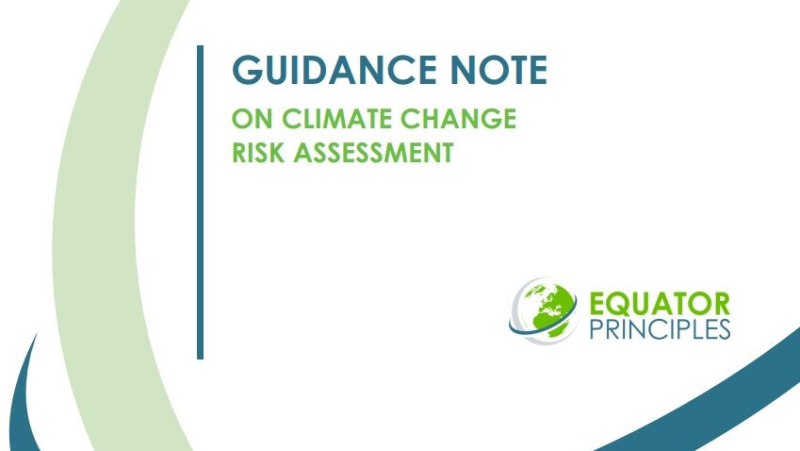Equator Principles recognise projects’ risk to climate for the first time

The success
The Equator Principles Association expands its concept of risk as part of a May 2023 guidance paper on Climate Change Risk Assessment. The guidance, for the first time, recognises the concept of ‘double materiality’ by defining climate risk in a way that includes risks posed by projects to the environment and society, and explaining that these risks can be material for banks. Previously, the Principles only called on banks’ clients to identify the risks climate change could pose to a project itself.
BankTrack's role
BankTrack has called on the Equator Principles Association since its inception 20 years ago to expand its concept of risk to encompass the climate impact of proposed projects as an integral part of all risk assessments. This includes regular engagement with the Association Secretariat and Steering Committee, organising open letters from civil society organisations, and campaigning on Equator-financed Dodgy Deal projects.
In May 2023, the Equator Principles Association published an updated guidance note on Climate Change Risk Assessment (CCRA). The note is intended to provide guidance to Equator banks and their clients in understanding and implementing the CCRA requirements set out in the latest iteration of the Equator Principles (EP4). It replaces the previous guidance note on the same topic dated September 2020.
Among other things, the new guidance expands the definition of materiality as part of the CCRA to include “climate-related impacts to society and the environment posed by the Project”. The updated guidance note, for the first time, recognises the concept of ‘double materiality’. It states that, in addition to considering financial materiality’, or the risk posed by climate change to the project's financial performance, clients need to consider ‘impact materiality’, or the climate-related impacts caused by the project to society and the environment.
These risks should be addressed by clients in the CCRA or elsewhere in the Environmental and Social Impact Assessment (ESIA). Such information is considered “material for lenders” if it “can be reasonably expected to have the ability to influence decisions they make on the basis of the anticipated climate/ESG performance, reputational risk and credit risk of the Project”. This expanded definition of materiality and risk is a first step forward by the Equator Principles Association which comes after years of pressure and advocacy from civil society groups, including BankTrack.
Since the inception of the Equator Principles, BankTrack and other civil society organisations have been calling on the Association to expand its concept of risk to encompass the climate impact of proposed projects as an integral part of all risk assessments. During both the review and update processes of the Equator Principles leading to EP3 and and again for EP4, BankTrack called on the Association to take a stronger stance on climate change.
The new Climate Change Risk Assessment guidance note is a step forward for the Association. However, it will be important to ensure that the guidance is implemented properly by both banks and their clients.
While this enhanced definition of risk is welcome, the Equator Principles must go further. More needs to be done to address the climate, nature and human rights related impacts of Equator projects. This includes updating the Principles themselves to entirely exclude finance for new fossil fuel projects, as well as other projects that are fundamentally harmful to people and the planet, as well as ensuring the banks can be held accountable for when the Principles are not met.
